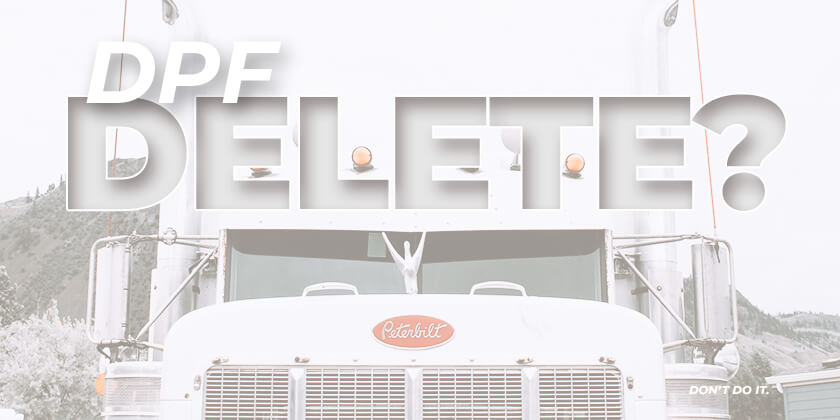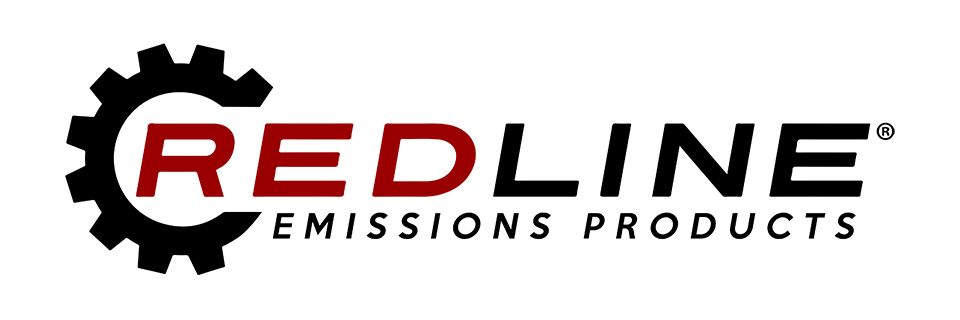
DPF Delete: The Myths, Realities, and Ramifications
Diesel engines have long been a cornerstone of the commercial trucking industry, renowned for their durability and efficiency. However, as environmental concerns have grown, so have the regulations surrounding diesel emissions. Central to these regulations is the Diesel Emission System, and at its heart, the Diesel Particulate Filter (DPF). Understanding the DPF, its purpose, and the controversies surrounding ‘DPF deletes’ is crucial for Fleet Maintenance Managers, Technicians, and Truck Owners alike.
The Diesel Emission System: A Brief Overview
In the early 1950s, a study in California highlighted the relationship between vehicles and air pollution, pinpointing car emissions as a primary factor for Los Angeles’s hazy skies. Originally, the average car released substantial amounts of hydrocarbons, nitrogen oxides, and carbon monoxide. However, with the intervention of the U.S. EPA, standards were established to reduce these emissions, prompting innovative solutions from the auto sector.
The EPA’s influence later expanded, overseeing emission control not only for cars but also for heavy-duty diesel vehicles. Achieving cleaner air involves multiple strategies, from enhanced engine/emissions technologies to improved fuel quality.
The Diesel Emissions System in its current form is comprised of several components like the Exhaust Gas Recirculation (EGR), Diesel Oxidation Catalyst (DOC), Selective Catalytic Reduction (SCR), and of course, the DPF. These mandated systems had a rocky start causing technical issues, frustrations, and in some cases lower performance. This led to DPF deletes becoming popular with some commercial and passenger truck owners.
Challenges with Diesel Emission Systems
As with any system, there are challenges. For truck owners, the Diesel Emission System has been a double-edged sword. While it plays a pivotal role in environmental protection, it’s also been linked to increased maintenance costs and downtime. Clogged DPFs can lead to reduced engine performance, necessitating cleaning or, in worst-case scenarios, replacement.
According to OverDriveOnline.com,
“Engine and emissions problems combined to account for the highest share of maintenance spending categories among used-truck buyers who responded to Overdrive’s 2021 Truck Purchase and Lease Survey. A combined 46% of used-truck buyers reported having to rebuild or conduct other engine work or having issues with emissions system components (23% each). Routine maintenance was the single-most common named maintenance issue, with 42% of used-truck buyers saying that has been their chief maintenance concern.”
This is what makes truck owners consider taking the risk and deleting these systems, but does deleting your DPF lower your total cost of operation to a level where the legal risks are worth it?
DPF Deletes: The Myths and Realities
Some have sought to bypass these challenges through ‘DPF deletes’, essentially removing or altering the DPF. While proponents claim enhanced performance and fuel efficiency, these benefits are often overstated. More importantly, they overshadow the environmental harm caused by bypassing a system designed to capture harmful pollutants and the financial and legal risks associated with deleting these systems.
According to Diesel Laptops, there are 5 common myths about DPF deletes. We’ve summarized these myths but if you want to read more in-depth information about emissions deletes make sure you read their entire article.

Myth #1 – DPF Deletes are Legal.
Here’s the straight truth: Making alterations to your truck’s emission system isn’t just frowned upon—it’s strictly illegal on a national level. While there is a legal pathway to remove your emission system, it comes with caveats: a rigorous re-certification process by the truck’s original maker. It’s neither simple nor cost-effective.
Myth #2 – There’s No Dedicated EPA Watchdog
Although there isn’t an official “EPA Watchdog” team patrolling every corner, that doesn’t mean regulations aren’t enforced. Just as the IRS operates without a ‘tax police’, local and state bodies have the power to uphold federal emission guidelines. Depending on where you reside, enforcement methods and intensity may vary, but the underlying rules are unwavering.
Myth #3 – The EPA Only Chases Big Players
Many believe that the EPA only has its sights set on industry mega carriers and national repair facilities. This couldn’t be further from the truth. From large equipment providers hit with hefty fines to individual truck enthusiasts tweaking a single vehicle, the EPA’s gaze is far-reaching. If you think you’re “flying under the radar,” think twice. A slip-up can cost a fortune in fines, no matter how ‘minor’ it may seem. Fines can range from $7,500 to $37,500 per day.
Myth #4 – Only California is Emission-Obsessed
While California might be infamously stringent about emissions, they’re not alone in the fight. At least 17 other states have committed to basically “do what California does” and specifically Texas has many counties that require emission testing on commercial trucks, and Minnesota and New York have established similar programs.
Myth #5 – Deleting DPFs Solves the Problem
Modern diesel engines are complex and deleting your emissions system can lead to major issues with the engine.
Legal Implications and Notable Penalties
Engaging in DPF deletes isn’t just environmentally questionable; it’s illegal. Authorities have issued significant penalties to those caught with deleted systems. These fines serve as a clear message: compliance is not optional. Beyond the immediate financial repercussions, companies caught engaging in such practices risk damage to their reputation, potentially affecting business relations and customer trust.
IN THE NEWS:
*** Idaho diesel shops fined $1 million in diesel deletion case. Read the full article on TPS. *** Sinister Diesel to pay $1M in fines – Roseville-based company made, sold ‘defeat devices’ for trucks. Read more.
*** Idaho diesel shops fined $1 million in diesel deletion case. Read the full article on TPS. *** Sinister Diesel to pay $1M in fines – Roseville-based company made, sold ‘defeat devices’ for trucks. Read more.
A Better Way Forward: Education and Maintenance

Instead of seeking short-term solutions in DPF deletes, the better route is to understand the Diesel Emission System thoroughly. Knowledge is power. By understanding how these systems work, Fleet Maintenance Managers and Technicians can preemptively address issues, reducing downtime and associated costs.
Regular maintenance, using quality parts, and being proactive can alleviate many of the common challenges associated with the Diesel Emission System. Training and upskilling of staff, ensuring they’re familiar with the latest in emission technology, can also play a significant role.
Work with the Experts
The Diesel Emission System, and the DPF in particular, might present challenges, but rather than seeking shortcuts that carry heavy financial and reputational risks, investing time and resources into understanding and maintaining these systems is the way forward.
If you’re tempted to consider a DPF delete, pause, and consult the experts. Ensure you’re making informed decisions that benefit not just your bottom line but the environment as well.

Call the Diesel Emissions experts first. Contact Redline Emissions Products today at 1-888-546-8741.
For inquiries or more information on our aftertreatment parts, DFP Cleaning equipment, or how to become an authorized REP distributor, feel free to contact us. We are here to assist you and provide the support you need every step of the way.
Want to find out about becoming a Redline Emissions Products® dealer? Contact Anthony Soto, National Sales Manager for REP to find out more. Call 888-295-4670
Need Tech Support or need help troubleshooting a DPF problem? No problem! Contact REP Support at 1-888-564-4209







